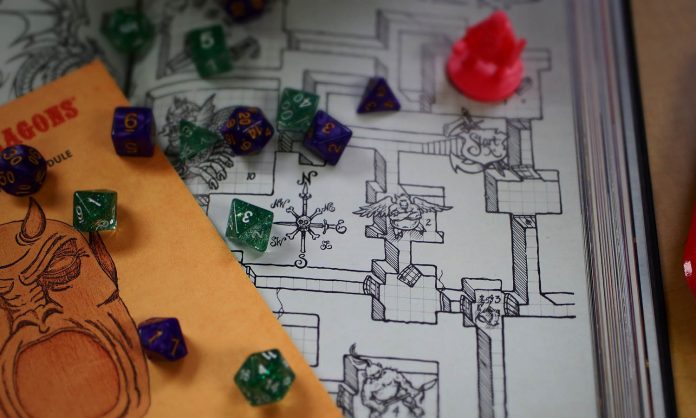Like life, success in Dungeons and Dragons often comes down to chance. The dice giveth and the dice taketh away. In an article for Writer’s Digest, Katharine Schellman says that’s exactly why writers should play D&D.
“When I started playing D&D, I was suddenly dedicating one night a week to a different kind of storytelling—the kind of fun, no-pressure improvisation with friends that I hadn’t done since I was a kid playing make believe,” Schellman says. “And an amazing thing happened in my writing.”
Importantly, gameplay gave Schellman a mental break and time to play creatively without the pressure to create tangible output. “Instead of struggling to write, I had more ideas than I knew what to do with,” she writes. “The book I was writing flowed more smoothly.”
Further, she learned the benefits of not planning too far ahead. “When I had planned out my character, I had a pretty good idea of what would happen in their arc,” Schellman says. “But a strange thing happened: None of those ideas happened. The story we were telling went in a completely different direction.”
While the player direct their character’s choices, the Dungeon Master guides the story, the conflicts, and the villains. And most of the time, the dice control whether you succeed or fail at your actions. “With a single roll, the plot can change in all sorts of unexpected ways,” Schellman writes. And of course, a single player has no control over how other members of the party act. “It was a new experience for me,” Schellman says. “Because the story was improvised and occasionally random, the plot that ended up happening was unexpected and often more interesting than one person could have come up with on their own.”
Schellman used the D&D technique when she was stuck in scene in her Regency era mystery. Would her sleuth fool someone who caught her sneaking into a suspect’s lodgings or not? What was the more interesting outcome? “To my surprise, I reached for a 20-sided die,” Schellman says. “If I rolled 11-20, I decided, she’d succeed at deceiving the landlady. If I rolled 1-10, she’d fail.” She rolled a 7, and now knew what to write next.
“Turns out, a little Dungeons & Dragons was exactly what my writing and I needed,” Schellman says.












